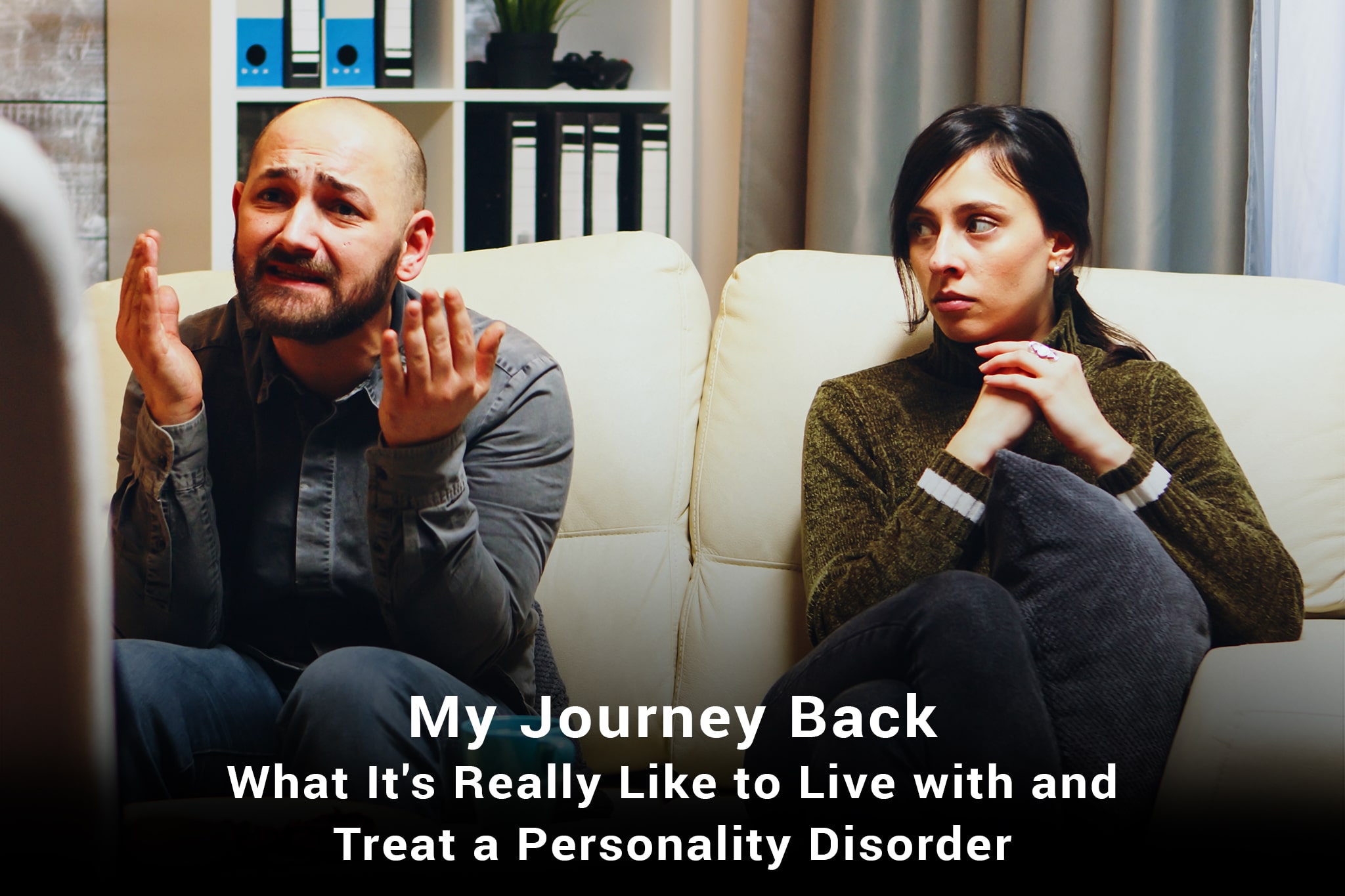Do your emotions sometimes feel too big to handle like they crash over you without warning? Maybe your relationships feel like a rollercoaster, and the fear of someone leaving feels almost unbearable. You might notice yourself acting on impulse, making choices that hurt you.
If any of this feels familiar, you might be living with a personality disorder.
These signs often begin in the teen years, and when they first show up, it can feel confusing, scary, and overwhelming. You may not understand why things feel so intense right now, but what you’re going through is real.
My Journey Back with a Personality Disorder
The first time I heard the words personality disorder, I felt like I had been branded. I was 27. My relationships were chaotic, my emotions were intense, and I felt like I was losing myself. I was relieved to finally have a diagnosis, but terrified of what it meant. That’s when my journey with treatment for personality disorders truly began.
This isn’t just a story about symptoms or therapy. It’s about what it really feels like to live with a psychiatric personality disorder and what it takes to fight for yourself, day after day.
A Name for the Storm: Understanding What Was Happening
For many years I had debilitating emotional outbursts, anxiety, and abandonment issues. At times, I thought I was just too sensitive, or “bad at life.”
When I finally went to see a psychiatrist who specializes in personality disorders (at that time near me), I began to understand that I had a Cluster B disorder; BPD had a name and a clinical definition. Emotional dysregulation, impulsivity, and fear of rejection were not character flaws; they were symptoms.
Many of us don’t recognize that mental illnesses are more common than we think. I didn’t understand enough and it took the DSM-5 criteria for an astute psychiatrist to relay some patterns to me that I couldn’t identify myself. From there, I was able to begin to learn about coping mechanisms, tangible things I could do to pause, think about what was going on, and find out some healthy ways to redirect myself.
Gathering Strength and Starting Treatment
The journey of treatment doesn’t begin with a breakthrough. It begins with breakdowns. And then slowly and over time, little bits of peace.
I began dialectical behavior therapy (DBT) , one of the most effective modalities for personality disorders, especially borderline personality disorder (BPD). DBT taught me about mindfulness, emotion regulation, and interpersonal effectiveness. My psychiatrist also prescribed me some medication as part of a broader plan that included psychiatric treatments, therapy, and lifestyle adjustments.
Living with a psychiatric personality disorder means you are constantly recognizing patterns within yourself just in time, before they take over. That requires practice. And patience. And tons of deep breaths.
Medication and psychiatric intervention also helped me identify co-occurring disorders. In my case, anxiety and depressive symptoms all contributed to my BPD symptoms and it was beneficial for us to recognize that, so we could revise my treatment plan.
Living Day-to-Day with a Personality Disorder
Let me be honest: some days still feel like a battle.
Triggers come out of nowhere. A delayed text. A misunderstanding. An old memory. But now I have skills. I pause. I label what I’m feeling. I reached out. My journal. I use grounding techniques.
The emotional pain used to feel like it would crush me. Now, it passes like a storm. Intense, but not forever. And that’s the thing, treatment for personality disorders isn’t about “fixing” who you are. It’s about understanding yourself so deeply that chaos loses its power.
What It’s Like to Seek Help for Dissociative Identity Disorder
Later in my healing, I began noticing some other moments where I’d lose track of time or feel like different versions of me were in conflict. That’s when my therapist introduced the idea of dissociative identity disorder (DID).
This was a harder truth to face. But I wasn’t alone. I found a dissociative identity disorder specialist who guided me through the process.
Dissociative identity disorder treatments follow a phased model:
- Stabilization to create safety
- Trauma processing through psychiatry
- Integration or cooperation between identities
With time, I learned that the parts inside me weren’t enemies. They were protectors. Helpers. Fragments of pain I’d never processed.
A good psychiatrist for dissociative identity disorder doesn’t rush the process. They support you in building internal communication and managing daily life.
The Stigma and the Silence
One of the hardest parts of having a personality disorder is the stigma of mental illness.
People misunderstand us. They say we’re manipulative, dramatic, or unstable. But they don’t see how hard we work just to get through a day. They don’t see the years of therapy, medication, courage it takes to trust, or the pain we hide behind our smiles.
Healing means giving yourself permission to exist fully even if others don’t get it.
And if you’re reading this thinking, that sounds like me, please know you’re not alone. A personality disorder psychiatrist near you can help. And there is no shame in needing support.
What Actually Helps: Tools That Changed My Life
Here are a few things that changed my life in treatment:
- Journaling Every Morning
Helps untangle thoughts before they spiral. - Creating a Calm Corner at Home
A safe place to reset when overstimulated. - Practicing DBT Daily
Even if it’s just five minutes of mindfulness. - Building a Support System
With people who see me beyond my diagnosis. - Using Crisis Tools
Hotlines, grounding objects, and apps when I feel overwhelmed. - Accepting Slow Progress
Healing isn’t linear. But it’s always worth it.
Words I Needed to Hear and Now Want to Say
If you’ve ever felt like you’re too much or not enough, this is for you.
You are not broken. You are learning.
You are not weak. You are rebuilding.
You are not alone.
There are others, like me, who’ve walked this road. And while it’s messy and hard, it’s also filled with moments of deep connection, quiet victories, and real transformation.
How MindVibe Makes a Difference
We believe that your story matters. Whether you’re just beginning to understand what you’re feeling or you’ve been in treatment for years, we meet you where you are with compassion, care, and zero judgment.
We offer specialized support for treatment for personality disorders, including BPD and DID, through trauma-informed, culturally conscious care. Our team includes experienced professionals who listen, empower, and guide you toward meaningful progress one step at a time.
Have you experienced something similar?
Share your story, your wins, or even your hardest moments in the comments. You never know who it might help.











